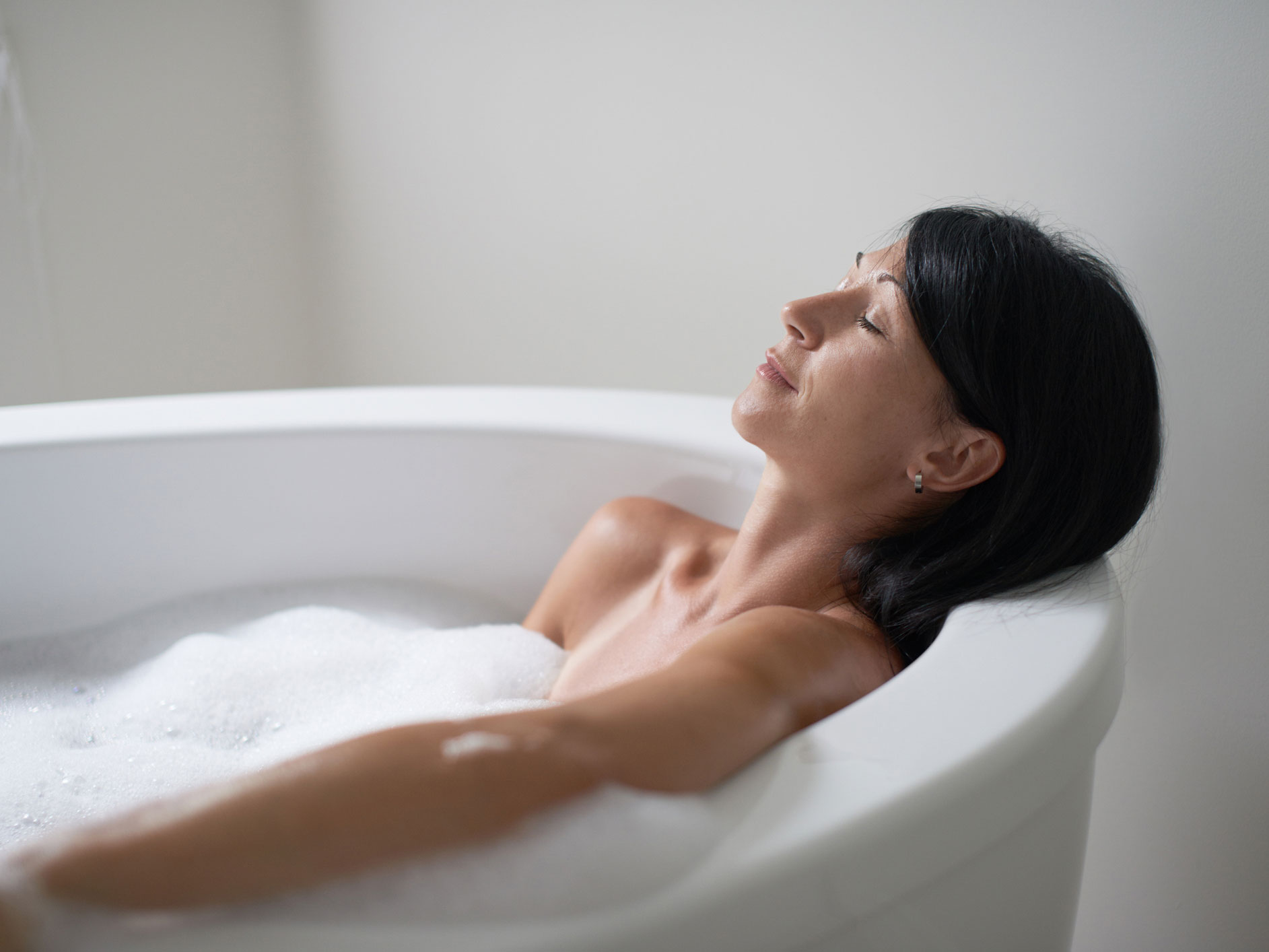Get Easy Health Digest™ in your inbox and don’t miss a thing when you subscribe today. Plus, get the free bonus report, Mother Nature’s Tips, Tricks and Remedies for Cholesterol, Blood Pressure & Blood Sugar as my way of saying welcome to the community!
The science behind a warm bath at bedtime

People have different solutions to try and get some shut-eye…
Some things, like chamomile tea and keeping light out of your bedroom seem to work, while others, like a nightcap before bed, may do more harm than good.
If things get really bad, many people turn to sleep pills to help them drift off into that longed-for slumber. But those pills come with definite risks, especially if you’re over 65. These include drug dependence (both physical and psychological), brain fog, and risk of falling and injury.
There is one thing that many folks have long used to help them relax, unwind mind and body, and prepare for restful sleep. And it works like a charm, for most people, but not for the reasons they think it does.
A warm bath could be the key to better sleep
Biomedical engineering student Shahab Haghayegh had long had trouble sleeping. But when he began his doctoral program at the University of Texas at Austin five years ago, things got worse.
“I would go to bed at 3 or 4 a.m. and wake up at 8 a.m.,” he says. Four or five hours of sleep a night was all he could hope for.
Haghayegh was in a state of near-constant fatigue. Finally, he turned to a tried and true home remedy. He started taking a warm bath before bedtime and found he was able to fall asleep at midnight and get three to four more hours of sleep each night.
This was good news. But he wanted to see if he could use scientific evidence to make his results even better and more consistent.
Along with several colleagues, Haghayegh conducted a systematic analysis of the research literature and pinpointed the way to apply this technique for optimum results.
Time it just right
Water-based passive body heating has a positive effect on several sleep-related difficulties:
- It can shorten sleep onset latency (the amount of time it takes to transition from full wakefulness to sleep)
- It can increase sleep efficiency (the amount of time you’re actually asleep, relative to the time spent in bed)
- It can increase total sleep time
- It can improve the quality of sleep
For best results, your warm bath or shower should happen 1 ½ to 2 hours before bedtime. This can shorten the time it takes to fall asleep by as much as ten minutes.
And, to improve your overall sleep quality, water temperature should be between 104 and 109 degrees F.
But why exactly does this work so well?
Like many things, it has to do with your body’s circadian rhythm, which regulates your sleep-wake cycle, body temperature, and hormones.
Matthew Walker, a neuroscientist and sleep specialist at the University of California Berkeley, offers a wonderful explanation of how this all works:
“We know that your core body temperature needs to drop by about 2 to 3 degrees Fahrenheit to initiate good sleep and then maintain deep sleep…..for you to get your heat out of the core of your body, you actually need to release that core heat through the outer perimeter surfaces of your body, namely your hands and your feet.”
So, a warm bath helps us sleep, not because it is relaxing, but because it brings all your blood to the surface, releasing heat efficiently through your hands and feet.
Other tips for a better night’s sleep
As we reach our 50s and 60s, a good night of sleep can become harder to achieve.
Here are some other things you can try, including vitamins, diet, and controlling the light sources in your bedroom.
You might also want to try melatonin. Not only can it help you sleep better, but it also helps lower cholesterol, fights diabetes, and delays the onset of Alzheimer’s disease.
Editor’s note: Did you know that when you take your body from acid to alkaline you can boost your energy, lose weight, soothe digestion, avoid illness and achieve wellness? Click here to discover The Alkaline Secret to Ultimate Vitality and revive your life today!
Sources:














